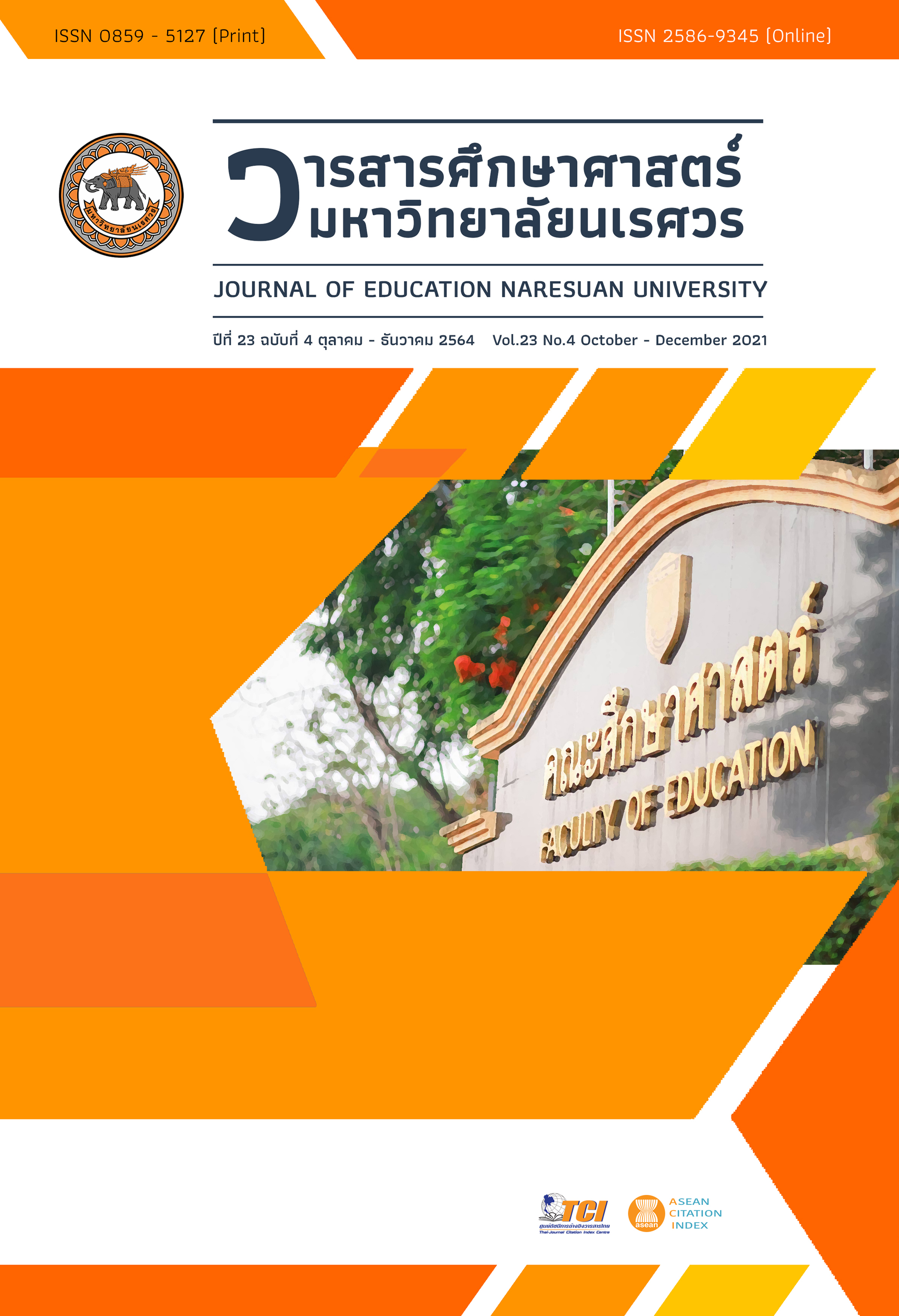THE RESULTS OF FLIPPED CLASSROOM LEARNNING ACTIVITIES WITH PROJECT-BASED LEARNING APPROACH TO ENHANCE ANALYSIS THINKING FOR UNDERGRADUATE STUDENTS ผลการใช้กิจกรรมการเรียนการสอนแบบห้องเรียนกลับด้านร่วมกับการจัดการเรียนรู้แบบโครงงานเพื่อส่งเสริมความสามารถในการคิดวิเคราะห์ สำหรับนิสิตปริญญาตรี
Main Article Content
Abstract
The purposes of this research were to develop flipped classroom learning activities with project-based learning approach to enhance analysis thinking for undergraduate students. The general purpose of this research was to develop flipped-classroom instructional activities with project-based learning approach for undergraduate students. The specific purposes were 1) to compare learning effectiveness of the students before and after learning from flipped classroom instructional activities with project-based learning approach, 2) to assess (the students’) behavior in analysis thinking after learning from flipped classroom instructional activities with project-based learning approach, and 3) to study the satisfaction of the students who joined flipped classroom instructional activities with project-based learning approach for undergraduate students. The research samples were 91 undergraduate students, Naresuan University who enrolled in the Introduction to Computer Information Science course. Data collection tools were 1) lesson plans using flipped classroom instructional activities with project-based learning approach 2) pre-test and post-test achievement, 3) assessment form in analysis thinking, and 4) satisfaction assessment form after joining flipped instructional activities with project-based learning approach. Data were analyzed using statistical tools - Mean, Standard Deviation, t-test dependent. The study found that:
1. Comparison of pre-test and post-test results, when using flipped-classroom instructional activities with project-based learning approach, showed the higher mean scores of the student post-tests with statistical significance of 0.05.
2. For analysis thinking assessment, the students after learning from flipped classroom instructional activities with project-based learning approach had higher level of thinking ability than before at a high level ( =4.13, S.D. = 0.64).
3. The overall results of the assessment of students’satisfaction from flipped-classroom instructional activities with project-based learning approach was at a high level ( = 4.11, S.D. = 0.43).
Article Details
The owner of the article does not copy or violate any of its copyright. If any copyright infringement occurs or prosecution, in any case, the Editorial Board is not involved in all the rights to the owner of the article to be performed.
References
Areeworawitkul, S. (2011). A study on science learning achievement and critical thinking abilities of mathayomsuksa 1 students through integrated instruction and cooperative learning (Master thesis). Bangkok: Srinakharinwirot University. [in Thai]
Bergmann, J., & Sams, A. (2012). Flip your classroom: Reach every student in every class every day. Retrieved July 1, 2020, from http://i-lib.imu.edu.my/NewPortal/images/NewPortal/CompE-Books/Flip-Your-Classroom.pdf
Cummins-Sebree, S. E., & White, E. (2014). Using the Flipped Classroom Design: Student impressions and lessons learned. AURCO Journal, 20, 95-111.
Kevin, R. C. (2013). Examination the effect of the flipped model of instruction on student engagement and performance in the secondary matchematics classroom: An action research study (Doctoral dissertation). Minneapolis, MN: Capella University.
Khammani, T. (2012). Science of teaching: Knowledge for effective learning management (15th ed.). Bangkok: Chulalongkorn University. [in Thai]
Luangdeb, K. (2018). Flipped classroom: Learning in 21st century. Retrieved April 2, 2520, from https://www.pharmscphub.com/2018/06/ห้องเรียนกลับด้านในการ/ [in Thai]
Ministry of Education. (2017). Thailand Education Scheme in Brief (B.E. 2560 - 2579). Bangkok:
Office of the Education Council. [in Thai]
Na Muang-on, S., Sittiwong, T., & Jiraworapong, P. (2016). The Flipped classroom and team based learning on general education for undergraduate students. Journal of Education Silpakorn University, 14(1), 46-53. [in Thai]
Naresuan University. (2019). Mission and vision statements. Retrieved December 22, 2019, from http://www.nu.ac.th [in Thai]
Panich, W. (2013). The teacher to student, build the flipped classroom (3rd ed.). Bangkok: Tathata Publication Company. [in Thai]
Poomphuang, K., & Sittiwong, T. (2018). Development of instructional activities Inverted classroom with collaborative learning management for tertiary students. Journal of Education Naresuan University, 20(2), 1-11. [in Thai]
Suairup, A. (2013). The study of academic achievement in the course Information Technology on Introduction to Computers of students in Grade 1 with cooperative group teaching using STAD technique (Research report). Bangkok: Faculty of Education, Kasetsart University. [in Thai]


